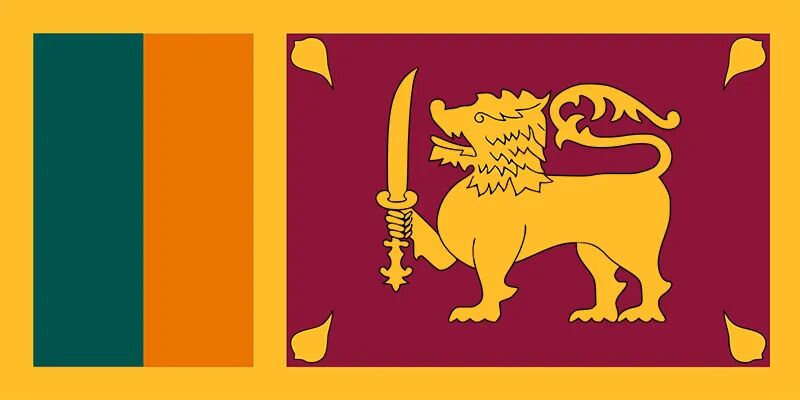6 Secrets to Building a Successful Team in the Philippines
In building a successful team, you need people who share your vision for your business or organization.
It is no secret that the Philippines is one of the best, if not the best, outsourcing destinations in the globe. With quality talent, best pricing, and minimal cultural barriers, a lot of companies have found success in building a successful team in this tropical paradise.
But the real secret to this is the Filipino workforce and their passion for work, according to BPO Director Andrew Mault who has 25 years operational management experience, spending the last 16 years working in outsourcing.
READ MORE: The Good, the Bad, the Odd: 17 Things I Learnt About Life in the Philippines During My 8-Year Stay
“I just find that in the Philippines, when they apply for the job, they want that job. They stay. You do the right thing for them, support them, provide the right training, and deliver on what you say you’ll deliver, they stay, and they work hard, they learn, they get better faster,” he said.
Andrew explained that the outsourcing industry in the Philippines is mature, and the level of talent is deep. He learned that outsourcing in the Philippines is not just about savings but also about the skills of the workers that can launch companies to greater heights.
“We went to the Philippines for savings, and we did save a lot. But the best part was the improvements driven by the Filipino workforce. Our productivity improved by 50 percent. Work quality improved massively by 70 percent. These were huge,” he said.
“The biggest misconception with the Philippines is probably that the only benefit is savings, whereas I think the true benefit is bringing these new skills to your business that you thought didn’t exist, being able to launch new services, and develop new products,” he added.
6 Tips on Building a Successful Team in the Philippines
While building a team in the Philippines is easy, making it successful requires planning, research, and some savvy techniques. So, if you’re looking to build a team in the Philippines for the first time, here are some tips from Andrew that you should remember:
1. Let your “Whys” guide you
Why offshore? Create an outline of your objectives and make them clear and precise. Do you want savings? Drill it down to the tiniest detail. What aspects of your business do you want to save, and where do you want these savings to go? Do you want to scale your team? What processes and functions do you want to offshore? There are many things to consider when offshoring your business, but always go back to your main objectives when making big decisions.
2. Make your goals measurable
Now that your purpose is clear, make sure they are attainable and measurable. If your goal is to launch a new 24/7 service channel by leveraging talent in the Philippines, what are the signs that you are on track? Do you want to launch this on a certain date? Set some “SMART” goals or objectives that are specific, measurable, attainable, relevant, and time-based. Set some key performance indicators and check them regularly. It could be weekly, monthly, or annually, depending on the deliverables. This way, you can tell whether you are on track to meet your goals, or you need to adjust. Remember that having a goal without tangible and measurable actions is just daydreaming.
3. Communicate openly, involve your team
Let your onshore team know why you are outsourcing some of your business’ functions, the benefits the company will get from it, and their role in this move. The onshore team may feel threatened when parts of the business are being moved offshore if they do not understand its purpose. It is also important to get members involved. Assign someone to lead the project, to track the milestones, or to assist in onboarding. This way, no one will feel left behind.
Another aspect that is frequently overlooked in integrating onshore and offshore teams is bridging cultural differences. Since your offshore team is an extension of your onshore team, it is crucial to integrate them into one united team working for a common goal. You can manage cultural barriers by researching and launching internal campaigns to explain facts about Filipino culture and people, and how to effectively communicate with them. Both the onshore and offshore team need to understand that their jobs do not compete and should in fact make each other better.
4. Merging of cultures
Company culture is crucial to the success of a team. It is not just a list of values, but something you live and breathe. It something that your team offshore should feel. But for this to work, you must understand the Philippine culture and how this aligns with yours. Your values will mean more to them if you can find the commonalities between your company values and their own personal values. Our expert talent consultants in Emapta can be a big help on this aspect, showing you the ways on how to navigate the Filipino culture.
Family, for one, is big for Filipinos who were raised to strive for proper education and are expected to have a stable career to support their family. Filipinos also put importance on camaraderie and loyalty, especially with their colleagues, valuing cooperation more than competition. They are generally cheerful people with a positive outlook even in the direst situations. Filipinos also love to celebrate. They have lots of festivals throughout the year. Even Christmas starts in September in the Philippines as they really take this time to be with friends, family, and loved ones.
5. Investing in time
Companies that thrive the most in the Philippines invest in time. It means they spend time developing their team, providing training and development, checking in through regular stand-up meetings, continuously communicating with them, and treating them like they are part of the onshore team. This way, they really feel that they belong, and you also learn more about them, what drives their work ethic and what will make their performance better.
Having a weekly, monthly, quarterly, or even annual performance review may help. It depends on the nature of the team you are working with. A team of developers, for example, may need daily stand-up meetings, while some other teams can do it weekly. Emapta’s client success managers can help you set up a regular performance review, and even help you throughout the whole process of managing your offshore team.
6. Find the right partner
Building an offshore team in the Philippines, like in any other country has nuances, especially when it comes to requirements, protocols, and paperwork. Finding the right provider will do a lot of the legwork for you. But more than the processes, the ideal provider has a great recruitment capability, secure IT infrastructure, and stable hardware and software support in the Philippines. Your partner will be the backbone of your team offshore, so it is important to find the one that suits your objectives.
Emapta has been in the outsourcing business for over a decade, providing premium talent to companies of all sizes across the globe. We help our partners achieve success by giving them flexibility when it comes to handling their offshore teams and providing ultramodern workspaces where their company culture can easily fit. We also have enterprise-grade data security and IT capabilities that can accommodate tailor-fit software and hardware solutions with 24/7 support.















